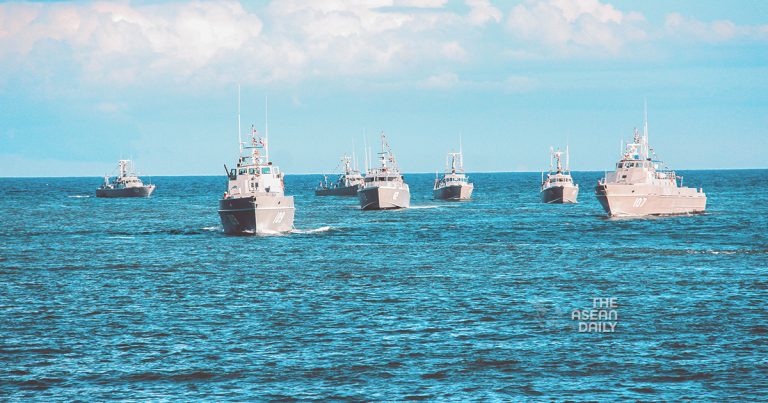23-8-2023 (MANILA) The Philippines found itself not invited to participate in recent naval exercises held by the United States, Japan, and Australia in the South China Sea, an exclusion that has prompted clarifications from Washington. In response to questions about the omission, the Pentagon emphasized that there was no deliberate intent to exclude the Philippines from the exercise.
Sabrina Singh, Deputy Pentagon Press Secretary, during a press briefing, stated, “We certainly do exercises with the Philippines. I don’t think that there was an exclusionary purpose here. It’s just a trilateral exercise that the United States is participating in. This is just one instance of this being a trilateral exercise with just these three countries. We conduct exercises all around the world that include other countries as well.”
Singh further pointed out that the recent visit of US Secretary of Defense Lloyd Austin to Manila and his regular engagement with Philippine officials should attest to the Philippines’ significance as a regional partner.
However, the Armed Forces of the Philippines (AFP) confirmed that it had not received an invitation to join the trilateral naval exercises. This development came just four months after the last Balikatan Exercises, which involved the AFP, US forces, and regional allies.
The Philippines is already gearing up for next year’s Balikatan Exercises, known as “Combined Exercise Balikatan 39-2024.” These annual military drills, scheduled for April, are expected to be one of the largest in terms of the number of participating troops and observer countries like Australia and Japan. The previous Balikatan involved approximately 17,600 soldiers from the Philippines, the US, and Australia.
US Ambassador Marykay Carlson hailed the 2023 Balikatan as “a testament to the strength of the US-Philippine alliance.” The exercises featured joint US and Philippine forces using modern weaponry to demonstrate their capabilities.
The Philippines has also been working on strengthening international cooperation in disaster response through Humanitarian Civic Action (HCA) activities, known as “Pacific Partnership.” These activities, in collaboration with the US Pacific Fleet, local government units, agencies, and non-government organizations, aim to engage local communities, build capacity, and enhance disaster preparedness. The joint efforts have been praised as a testament to the enduring partnership between participating agencies.
In the realm of maritime security, there is hope that the joint naval drills in the South China Sea, involving the US, Japan, and Australia, as well as improved relations between Tokyo and Seoul, could pave the way for joint maritime patrols with the Philippines in the West Philippine Sea. These patrols are seen as a response to China’s increasing assertiveness in the region.
Rep. LRay Villafuerte expressed optimism about such joint patrols, given Beijing’s “increasingly incursive actions” in the West Philippine Sea. He emphasized the importance of upholding the rules-based international order in pursuit of regional peace and stability.
Villafuerte also welcomed the Department of Foreign Affairs’ openness to expanding joint patrols to include other Southeast Asian allies, highlighting the need for Manila to collaborate with the US and other close country-allies to safeguard its exclusive economic zone (EEZ) and continental shelf.




